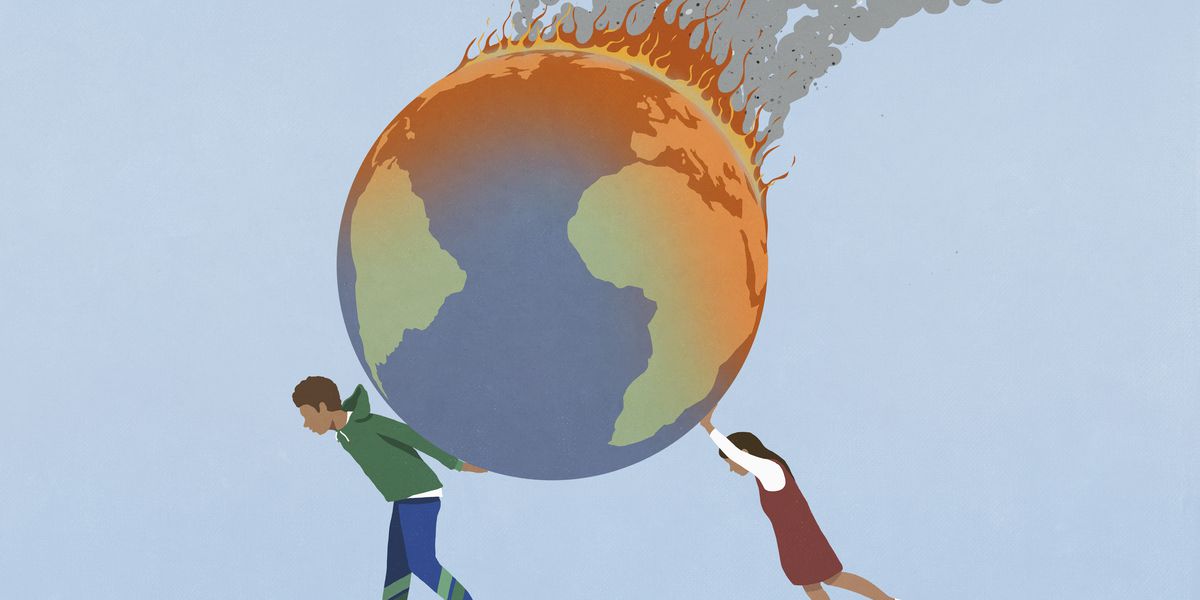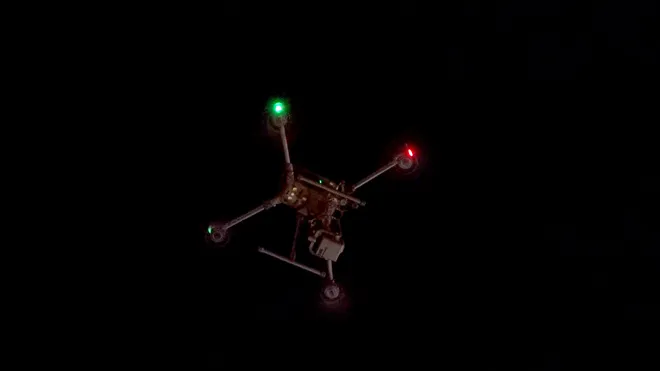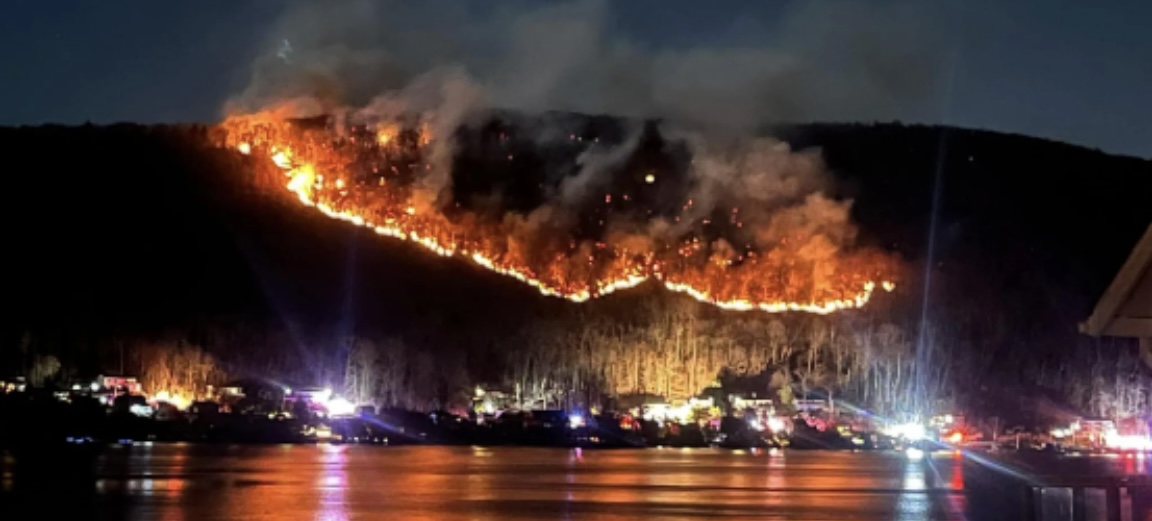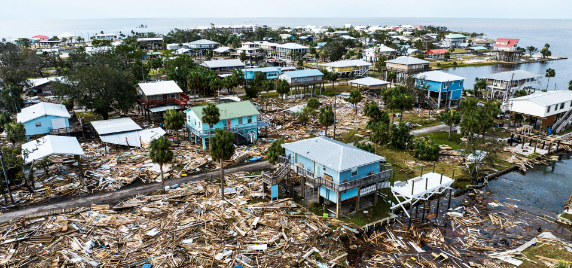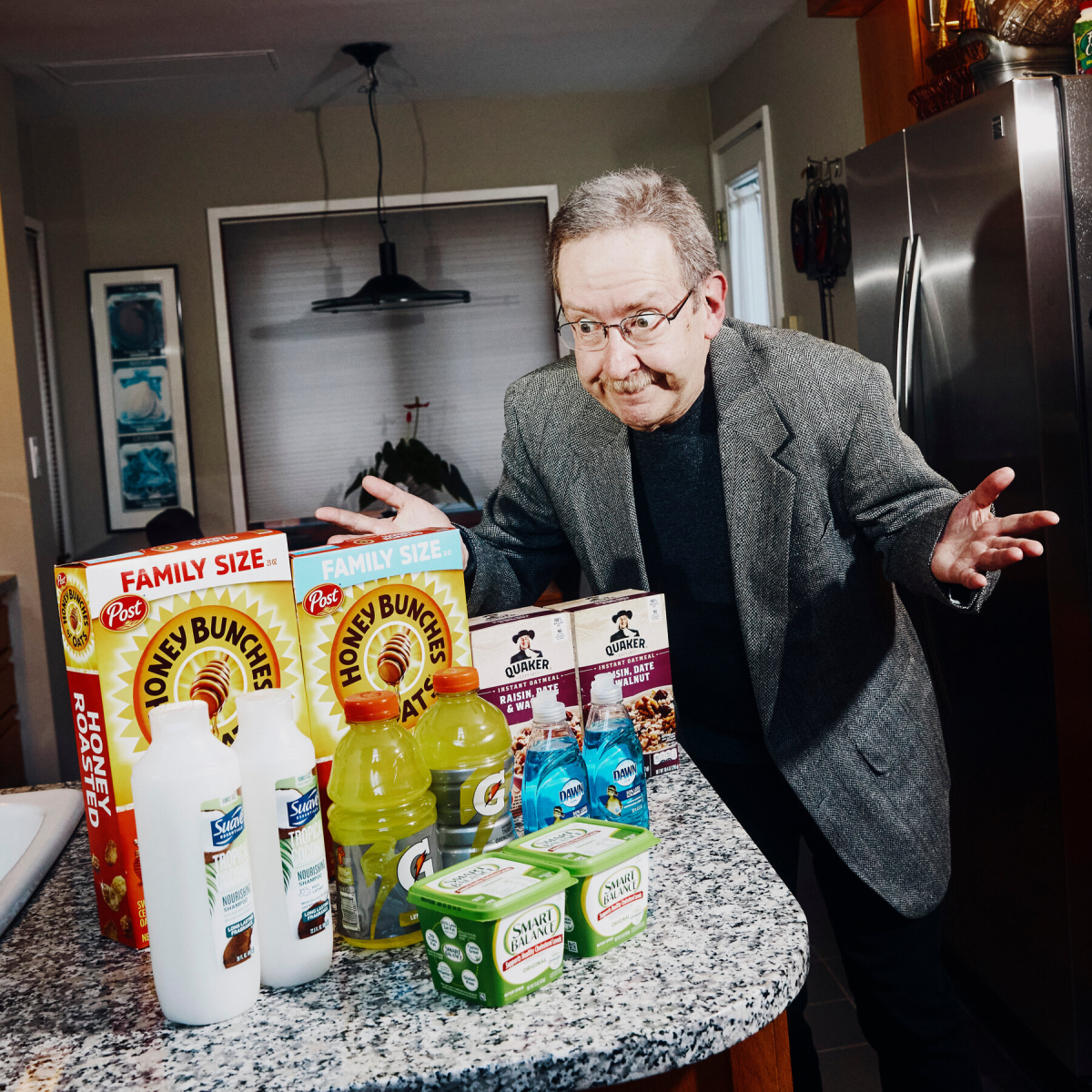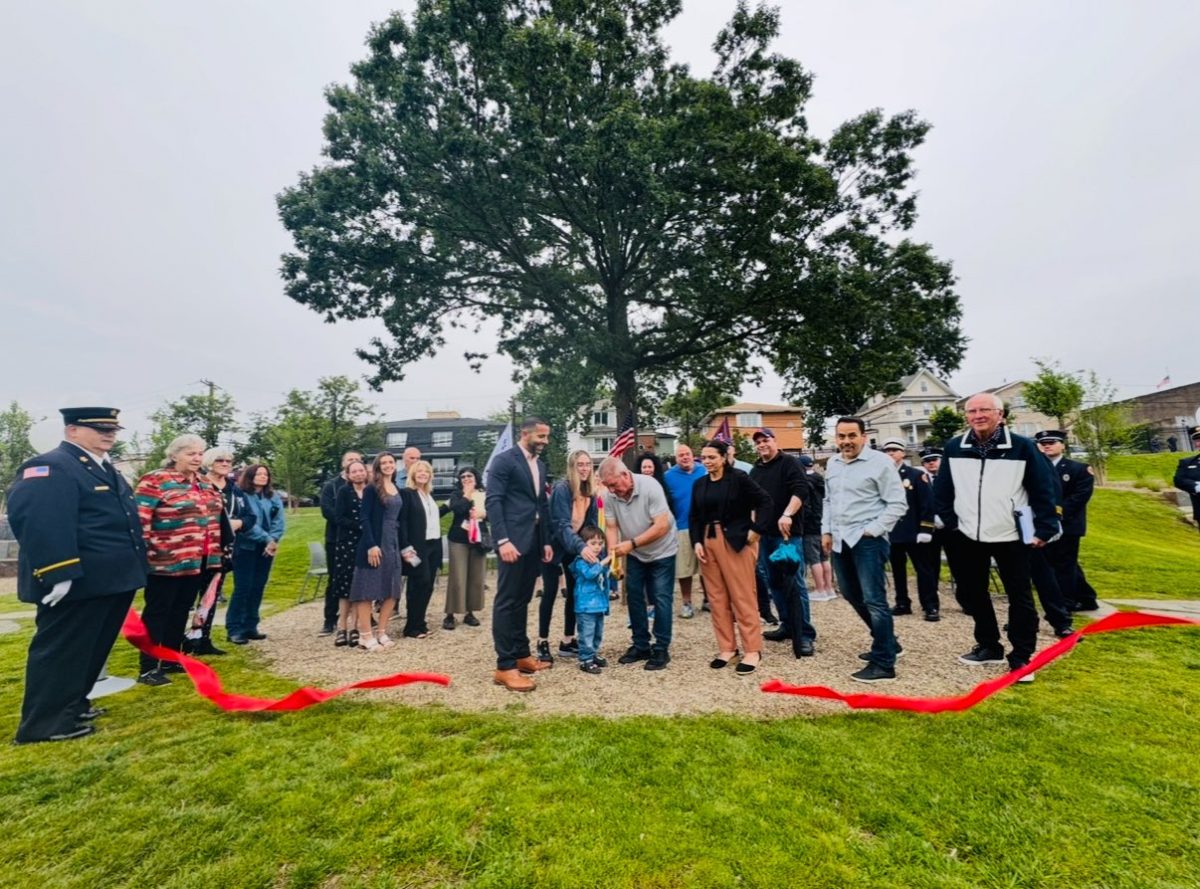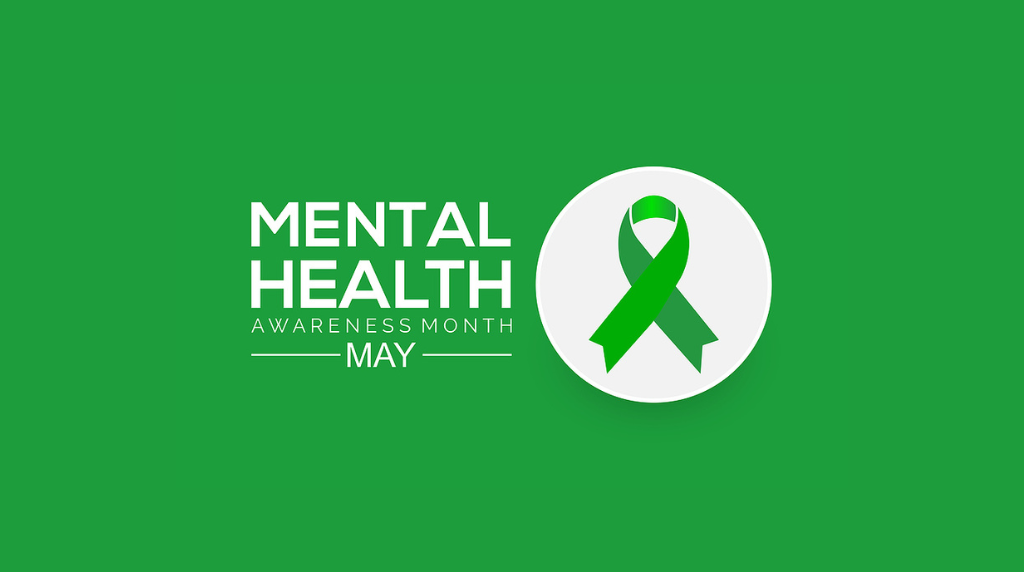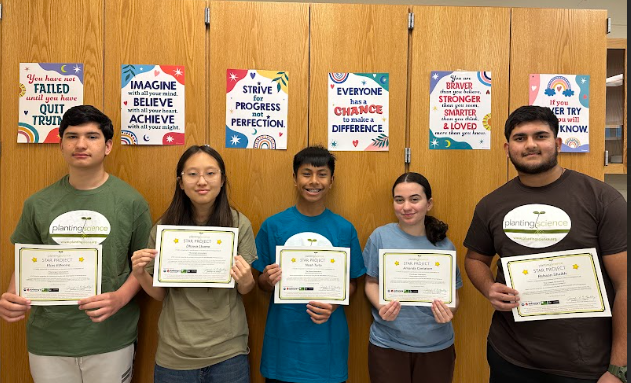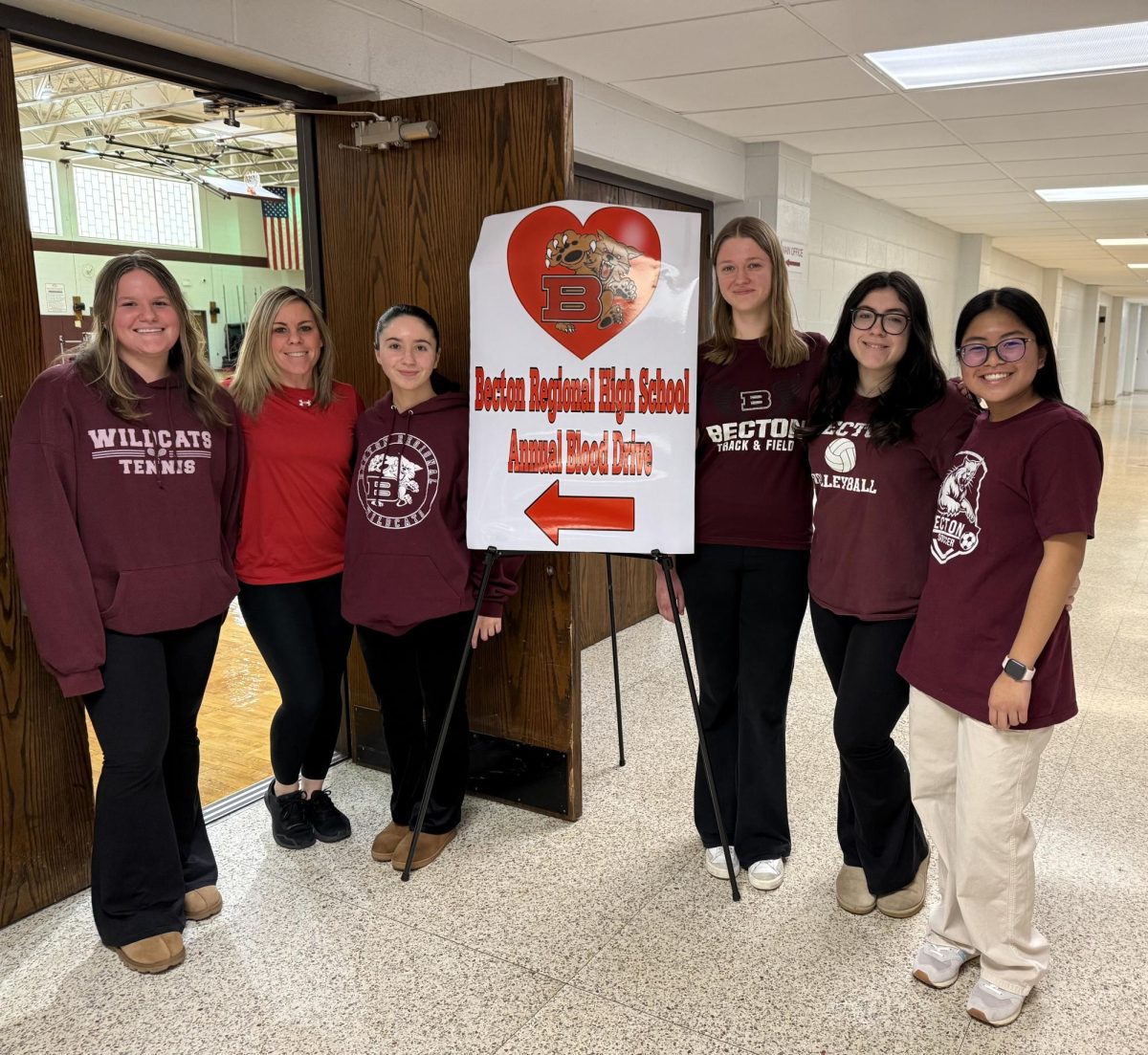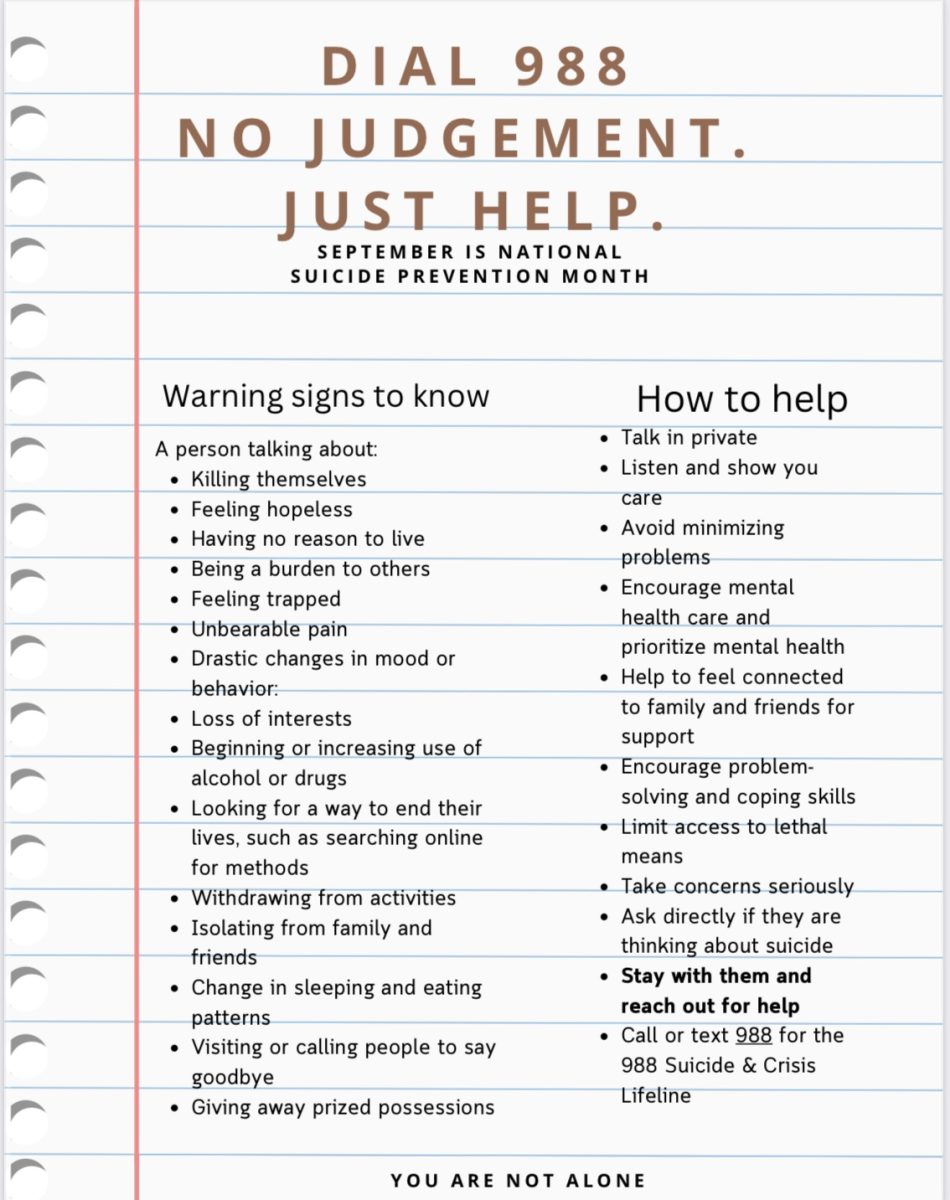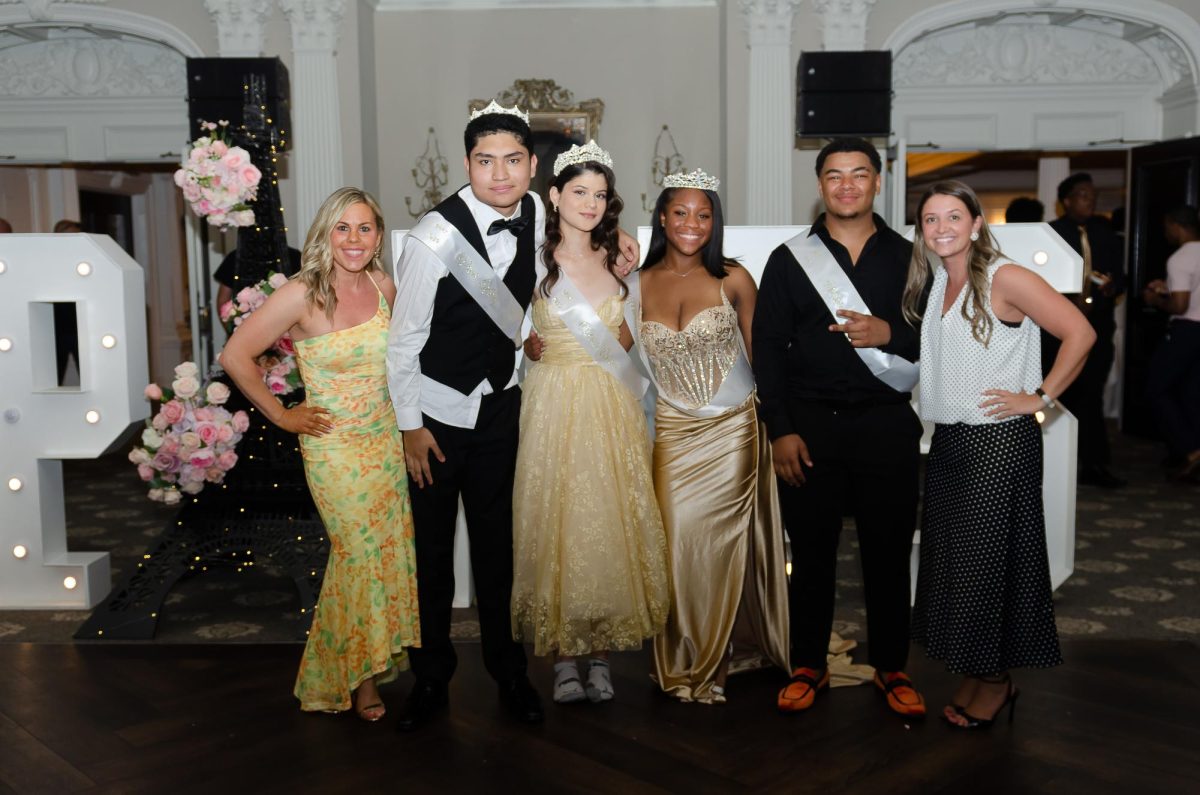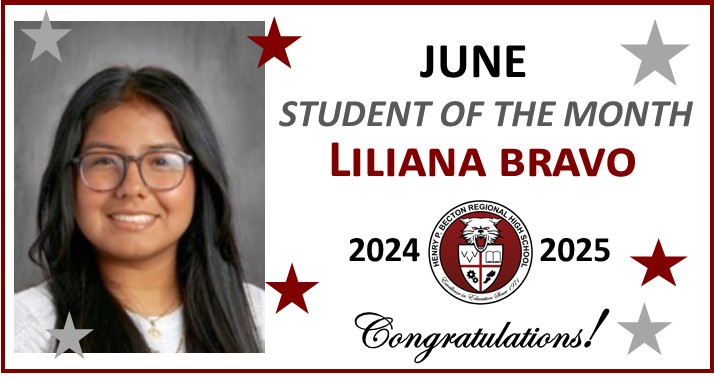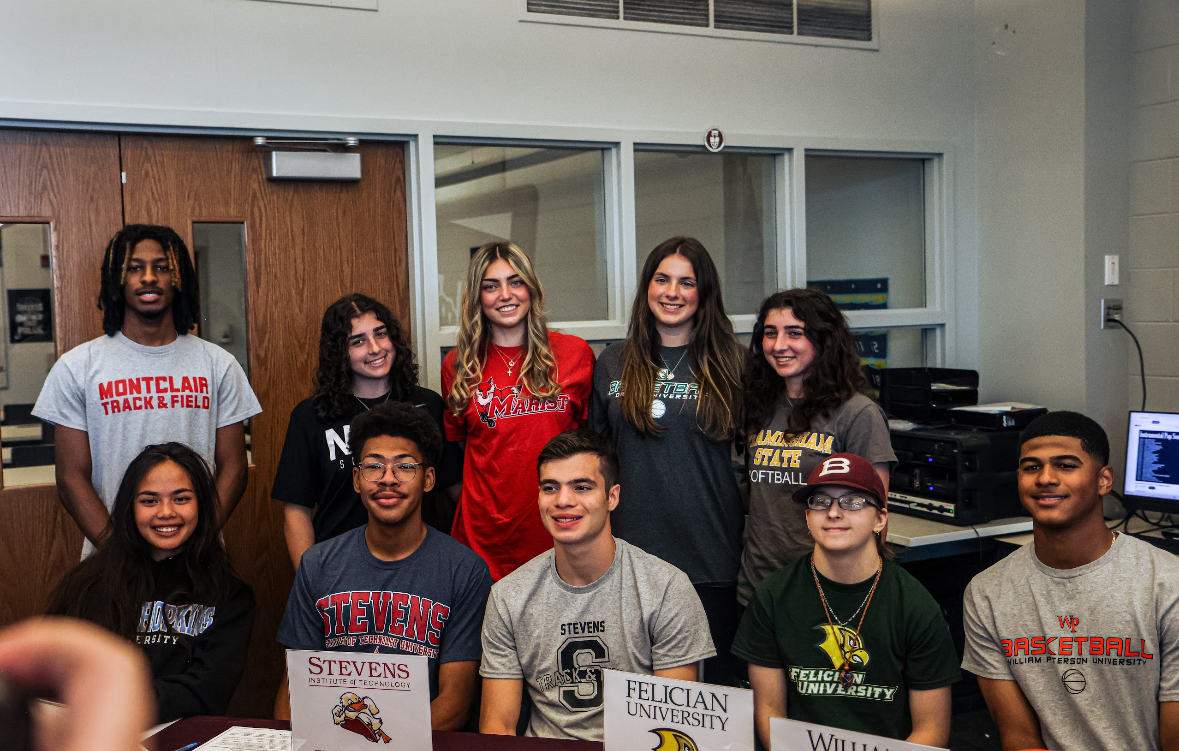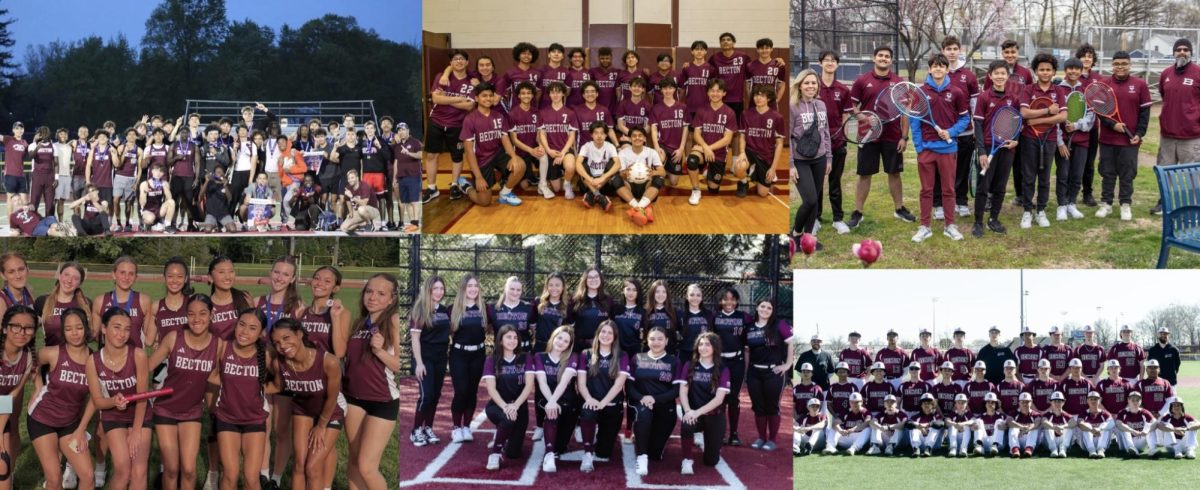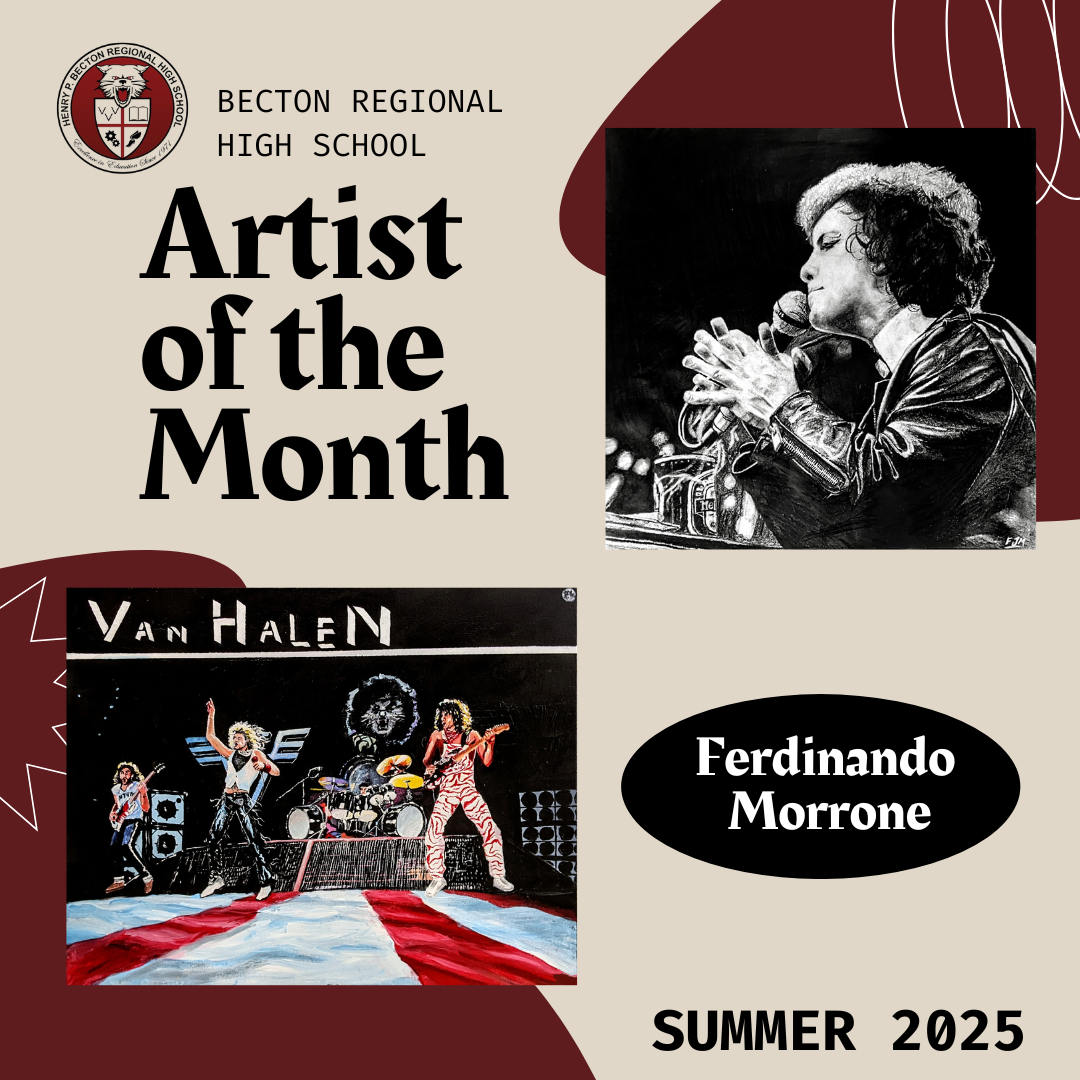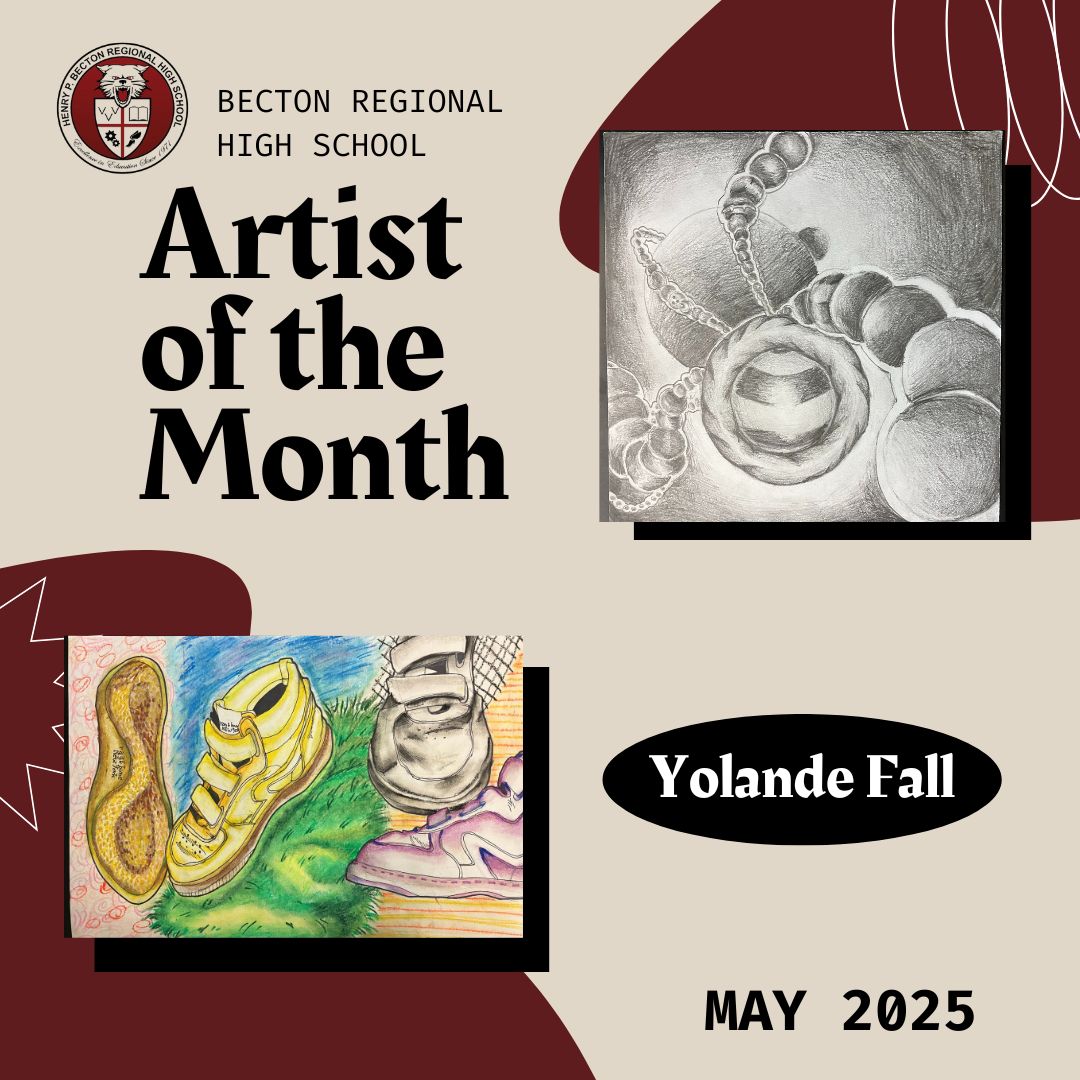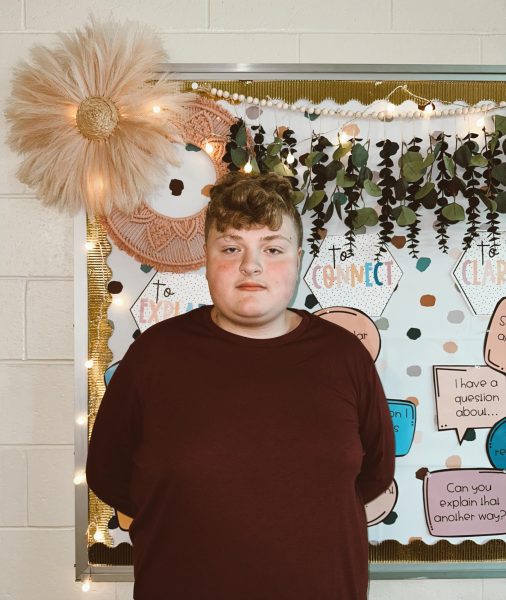Climate change is by far the most existential threat to humanity. It is defined as the long term shifts in temperatures, and weather patterns, mainly caused by human activities, especially the burning of fossil fuels. The earth is slowly heating up, and even a little heating up could cause huge issues for all living things; Earth’s average temperature has risen by 1.5 degrees Fahrenheit over the past century, and is projected to rise a lot more in the next hundred years.
Ms. Angela Calasso, a Becton science teacher who also runs the Environmental Club, informs, “Here is a quick little Biology lesson: Plants/Algae (other photosynthetic organisms) are the ONLY things on this planet that can sequester carbon dioxide (take it out of our atmosphere). Meanwhile, there are many contributors of CO2 and greenhouse gas emissions (adding it to our atmosphere) including burning of fossil fuels via transportation, heat and electricity, industry and agriculture, etc.”
Scientists all agree that humans are largely responsible for climate change, this is a fact. Humans have released large amounts of carbon dioxide and other greenhouse gasses into the atmosphere. Greenhouse gasses act like essentially a blanket around the earth, trapping heat in the atmosphere and causing it to warm. This can cause devastating effects, such as hotter temperatures, more severe storms, increased drought, a warming rising ocean, loss of species, not enough food, more health risks, poverty and displacement. This also affects poorer populations more, because they tend to live in hotter areas.
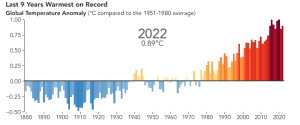 Humans are the root cause of climate change, but who is ultimately responsible for climate change, and why have greenhouse gasses not been stopped from being released? Big oil corporations are. They care about profits over the environment, and spend tons of money to push their interests through and promote propaganda about climate change, doing things like denying it or “greenwashing.” The way this term is defined from “Investopedia” is “the process of conveying a false impression or misleading information about how a company’s products are environmentally sound.” Another tactic they used is to push interests through by paying people to do so, and pretend they are being honest about it. In fact, almost all kinds of companies affect the environment in some way, because a lot of the process of making things release carbon emissions.
Humans are the root cause of climate change, but who is ultimately responsible for climate change, and why have greenhouse gasses not been stopped from being released? Big oil corporations are. They care about profits over the environment, and spend tons of money to push their interests through and promote propaganda about climate change, doing things like denying it or “greenwashing.” The way this term is defined from “Investopedia” is “the process of conveying a false impression or misleading information about how a company’s products are environmentally sound.” Another tactic they used is to push interests through by paying people to do so, and pretend they are being honest about it. In fact, almost all kinds of companies affect the environment in some way, because a lot of the process of making things release carbon emissions.
Calasso expresses her thoughts on this, “There are WAY more human activities that contribute to greenhouse gasses in our atmosphere than there are organisms available to remove it (due to activities such as deforestation.) Therefore, there is an abundance of greenhouse gasses in our atmosphere causing global warming, which has a significantly negative effect on living organisms who depend on constant and consistent global temperatures. Since human activities are the main cause- there is an urgency for environmental stewardship and action.”
If climate change is the number one threat to humanity, why do we not hear about it much in the news? The main reason is that most news organizations themselves are funded by big oil companies– so of course they do not want to talk about it that much! There are some crowdfunded sources where you could get real honest news from, such as “The Guardian”, but most main news sources are funded by big corporations. If they honestly talk about it, they would lose all their funding, or they would fire the “problematic” employees.
A big environmental activist of our time is Greta Thunberg. Thunberg has made many great strides to fight the cause, such as making speeches, writing books, and heading protests. Thunberg has been a big part of protesting oil companies, and continues to do so til this day. One famous quote from her is, “Our civilization is being sacrificed for the opportunity of a very small number of people to continue making enormous amounts of money.”
In the survey conducted at Becton, the general consensus was that climate change is a huge threat. When Dr. DeSousa was asked, “How concerned are you about the impact of climate change on our planet and future generations?” He attested, “Very. As a father of a young child I think that it is important that we try to ‘fix’ the problems we have caused.” When Noella Turla, a member of the Environmental Club, was asked, “How often do you hear about climate change on the news and/or social media? Do you think this could be improved?” She shared, “I do not hear about it very often, maybe once or twice a month. In order to enact change, it must be more prominent in the news and social media.” This is also true, and one of the only ways change will actually occur is if people hear more about it in the news.
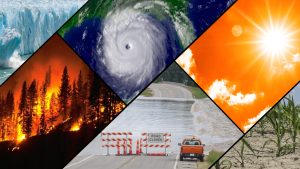 So… What can we do about it? Some of the things we can do are: save energy at home (for example switch to solar power) walk, bike, or use public transportation, eat more vegetables, consider your travel, throw away less food, reduce, reuse, repair, and recycle, change your home’s source of energy, and switch to an electric vehicle. These definitely will help, but real change will only come about when we come together, protest, elect people who actually care about combating climate change, and listen to climate activists (such as Greta Thunberg) among various other things.
So… What can we do about it? Some of the things we can do are: save energy at home (for example switch to solar power) walk, bike, or use public transportation, eat more vegetables, consider your travel, throw away less food, reduce, reuse, repair, and recycle, change your home’s source of energy, and switch to an electric vehicle. These definitely will help, but real change will only come about when we come together, protest, elect people who actually care about combating climate change, and listen to climate activists (such as Greta Thunberg) among various other things.
In Calasso’s Environmental Club, she said “During club meetings, students work to identify school-wide environmental issues and students propose solutions of sustainability. For example, students noticed a high amount of food waste in the culinary rooms and cafeterias so they implemented a composting initiative. Additionally, they noticed many students using single-use plastic water bottles and since we have refillable stations, we sold reusable water bottles. Last year one of our custodians noticed that many students were bringing in single-use plastic cups from lunch so we sold reusable cups to encourage sustainability.”
All in all, climate change is obviously a huge threat, but all hope is not lost! There are still ways we can reverse some of the effects of climate change. While you can take action on a personal level, the real change will only come with policy change. So protest, elect leaders, voice your opinion on social media, have healthy debates, and great results will come!


